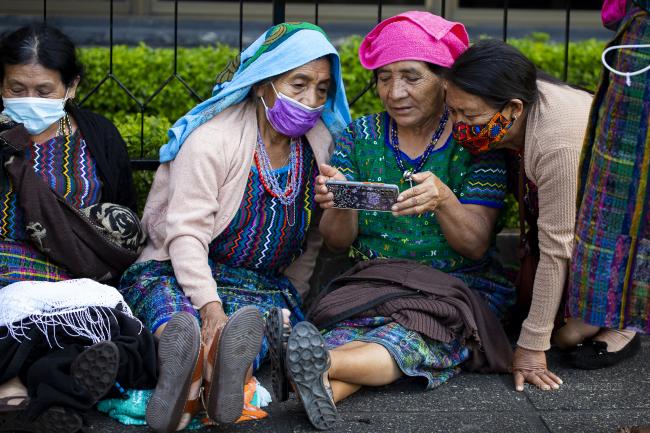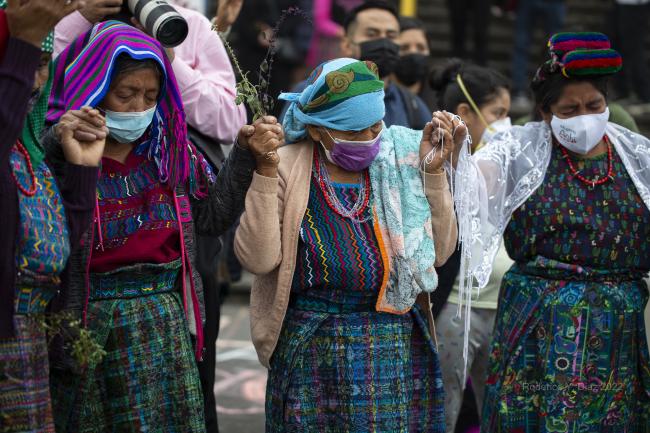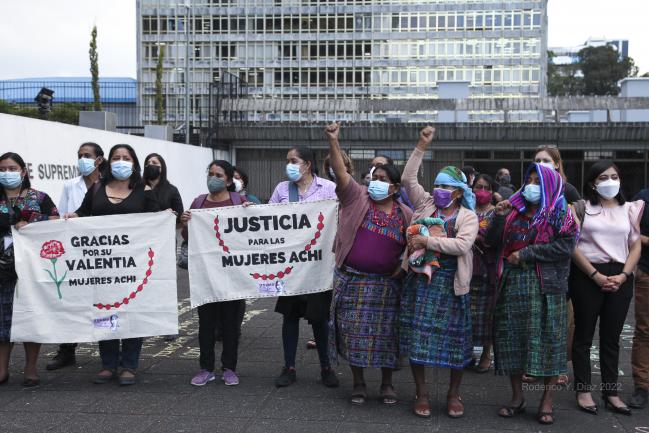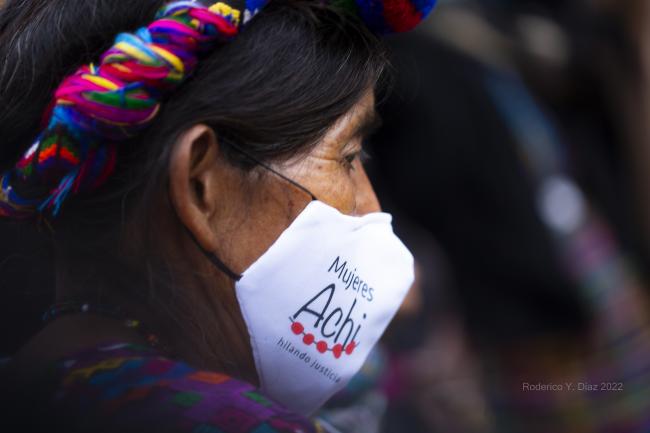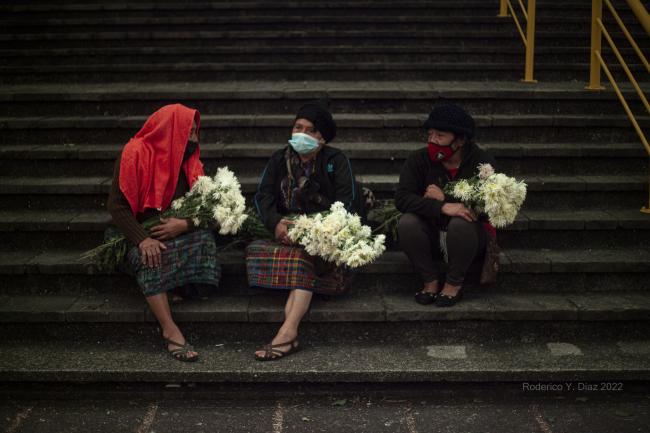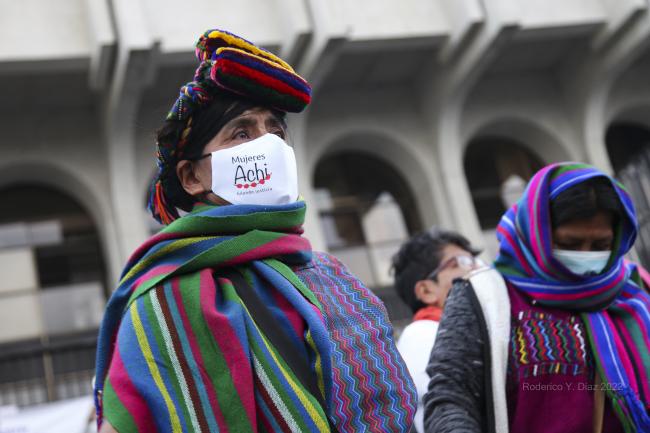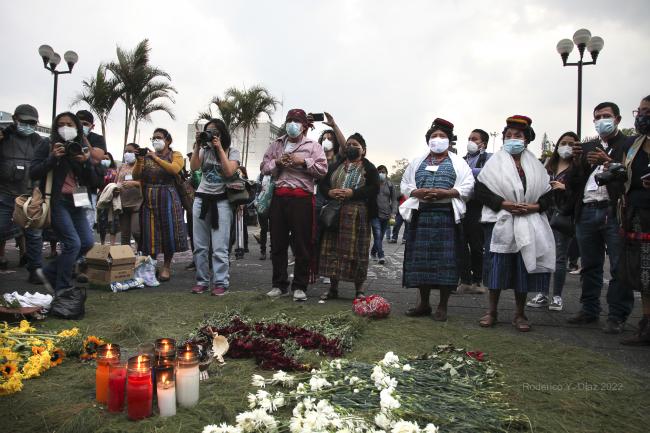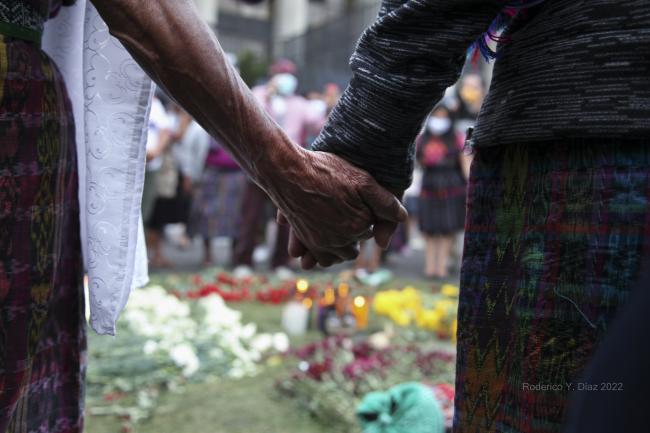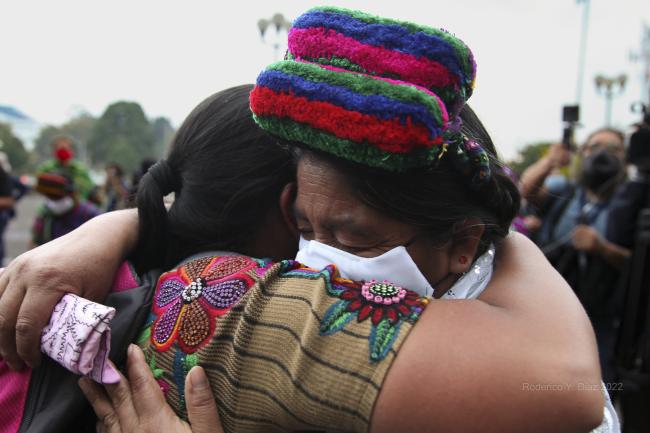After over a decade of court battles spearheaded by 36 Maya Achí survivors, a special tribunal convicted five former paramilitary soldiers of crimes against humanity on January 24. Each of the convicted were sentenced to 30 years in prison for acts of sexual violence committed in the early 1980s during the internal armed conflict in Guatemala (1960-1996).
Judge Sical of High Risk Court A read the verdict to a small crowd gathered in the courtroom. Outside the courthouse, hundreds more listened to a livestream of the proceedings set up by Verdad y Justicia, a civil society organization that accompanies historic human rights cases in Guatemala.
The verdict set an important precedent, highlighting the intentional use of sexual violence as a military strategy: "Sexual violence against Achí women was used as part of the military strategy that considered them an internal enemy...Using sexual violence, they sought to destroy the Maya Achi people through the bodies of Achí women....They were used as ‘spoils of war’ and as a tool of torture.”
Outside the courthouse, hundreds of supporters celebrated the verdict and the survivors addressed the crowd. "We are happy with this sentence,” one of the women said.“We are here because it is our right and it is an obligation of the [Guatemalan] state. They owe us this, because not only did they rape us, they also killed our family members and burned our crops, they killed the essence of our crops.”
Roderico Y. Diaz is an Indigenous Maya Kaqchikel independent photojournalist and documentary videographer based between Guatemala and the United States. His work focuses on the struggle for justice after the genocide in Guatemala, Indigenous rights, the legacy of colonialism and the lives of migrants living in the United States. His perspective is informed by his own migration experience and as a survivor of the genocide in Guatemala. His work has been exhibited in galleries and universities in Guatemala and the United States, and his documentaries have participated in national and international festivals. Diaz is the co-founder of Iximché Media. To learn more: www.rodediaz.com and www.iximchemedia.com



